[Barcelona, Spain, February 27, 2024] At MWC Barcelona 2024, Huawei held a transportation session with the theme of "Leading Infrastructure to Empower Digital and Intelligent Transportation". It drew a gathering of Huawei's customers and partners alongside other industry experts. They discussed how the transportation industry can benefit from the wave of intelligence. At the session, Huawei unveiled four new ICT products and solutions.
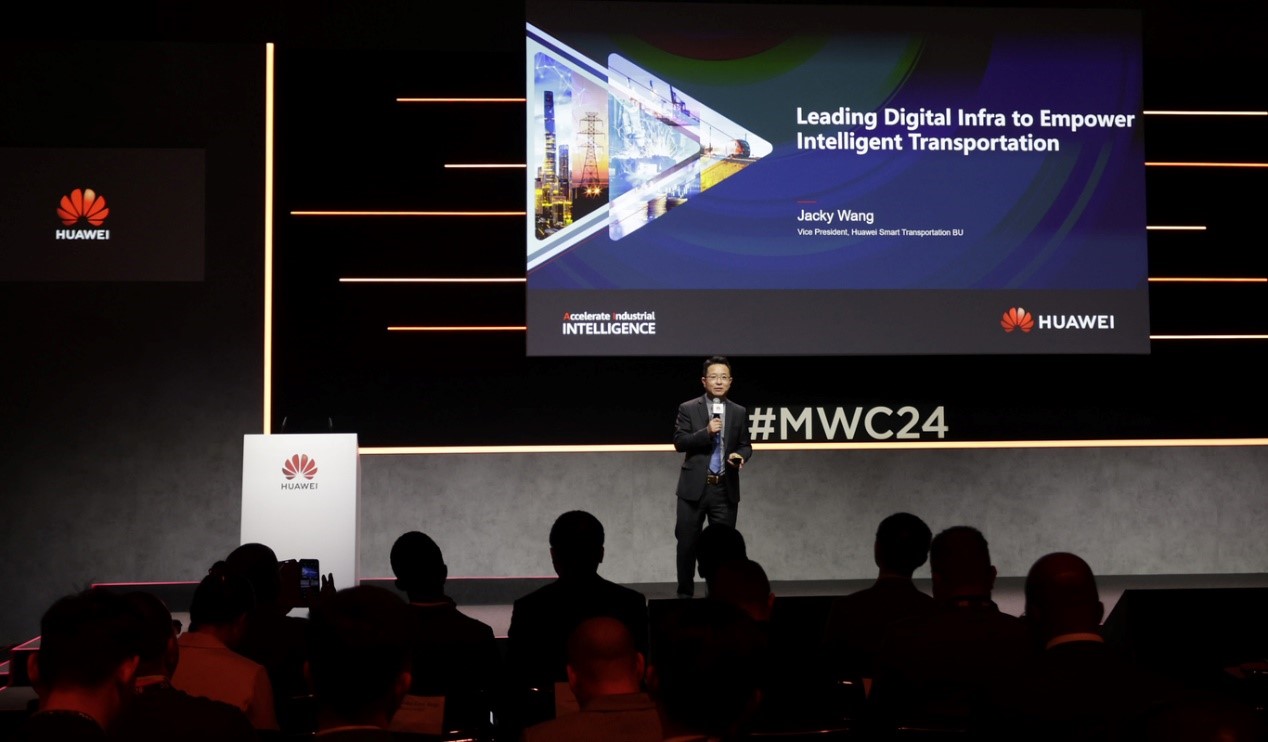
Jackey Wang, Vice President of Huawei's Smart Transportation BU, said that "Digital and intelligent transportation needs to improve travel experience for passengers and reduce logistics costs across the whole society." He continued on to state that Huawei, with a focus on industry scenarios, has developed creative ICT products and solutions. "By adopting a 'point-line-plane' approach, we have teamed up with customers and partners to build a digital and intelligent foundation for comprehensive transportation and logistics that can facilitate the secure and efficient operations of the supply and industrial chains, consolidate the digital infrastructure to improve the capability of transportation, harness the potential of data elements to develop the transportation economy, and leverage full-stack digital capabilities to guarantee the digital transportation security."
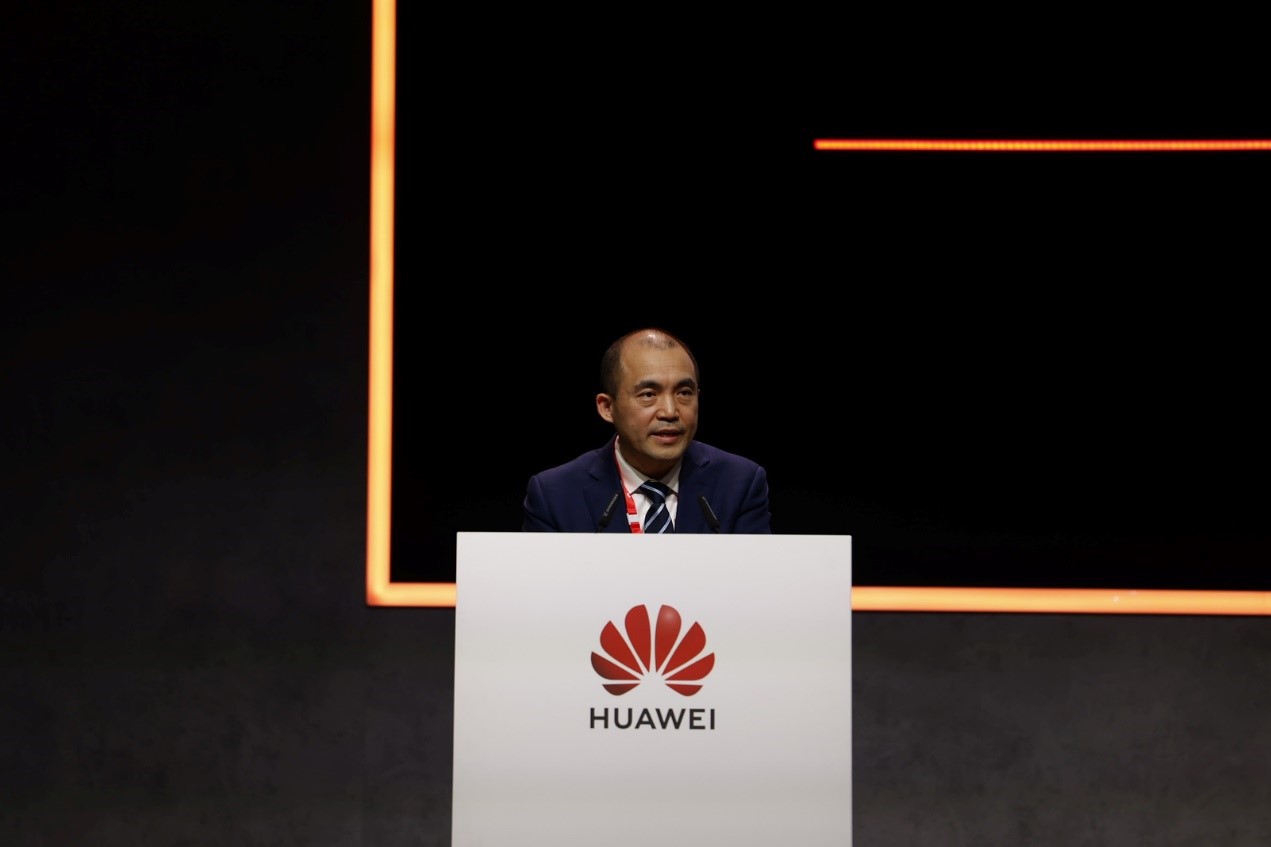
Ports are crucial hubs across the transportation network. They play a pivotal role in promoting economic growth and ensuring the security and stability of supply and industrial chains. Yang Jiemin, Vice President of Tianjin Port Group, said: "We are strengthening our partnerships with excellent enterprises like Huawei to deepen the integration of ICTs such as 5G and AI into the port sector. Through close cooperation in top-level design for informatization and smart port construction, we can build greener and smarter hub ports."
The GLOMO Awards Ceremony recognized the Smart Port Solution, implemented by Tianjin Port, Huawei, and China Mobile, as the Best Mobile Innovation for Connected Economy in 2022. The award seeks out mobile-based innovation that is creating more digital workplaces. The new intelligent system of Tianjin Port connects port operations, automates transportation, and increases efficiency, which in turn saves on costs and energy.
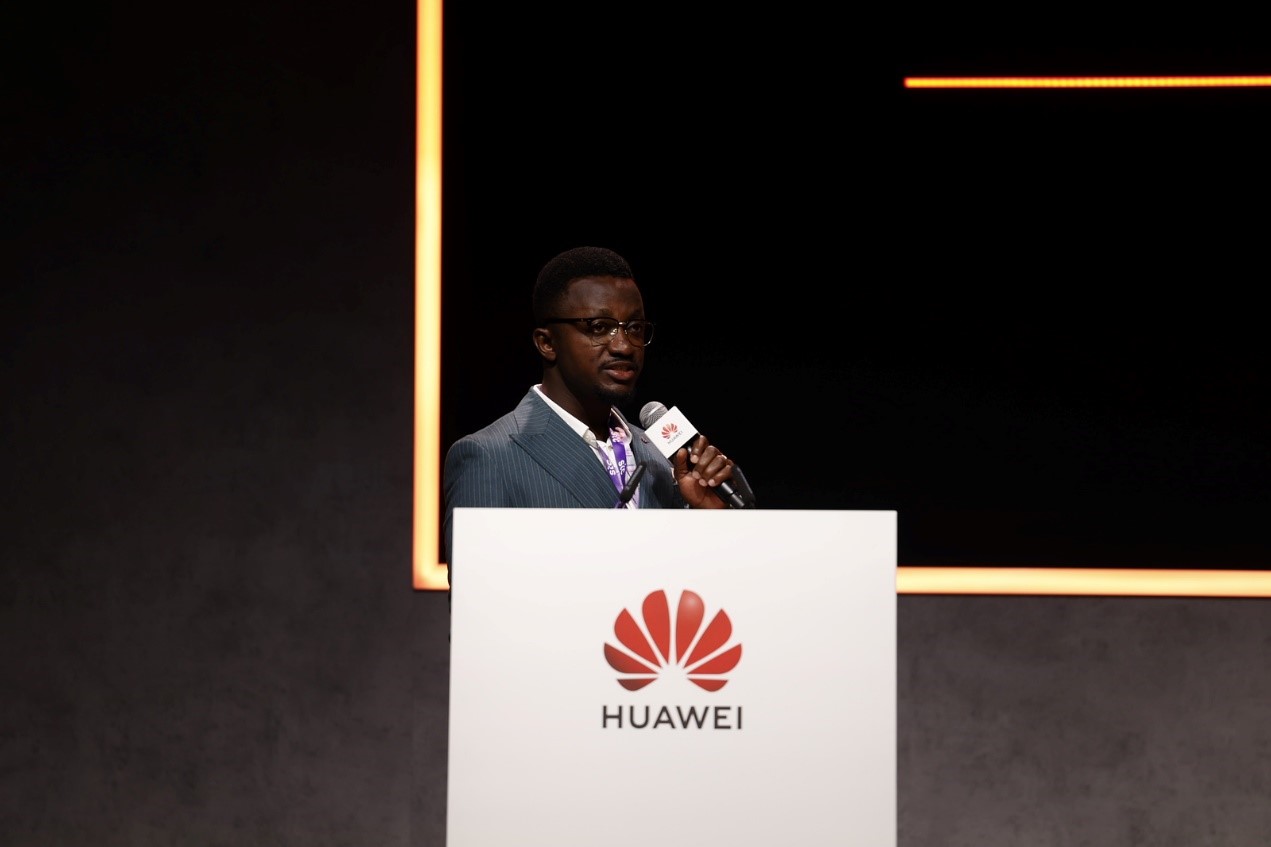
Côte d'Ivoire has released its National Road Safety Strategy 2021–2025. It intends to leverage AI, cloud computing, big data, and more to build a national intelligent transportation system (ITS) and enhance road safety across the country. Ange NIMBA, Head of IT & Innovation at the Urban Mobility Authority of Greater Abidjan (AMUGA), Ministry of Transport of Côte d'Ivoire, delivered a speech at the session. He spoke about the ITS project being implemented by the government in collaboration with Huawei. He announced that the first-phase ITS had already been put into commercial use, which will take road traffic management and road information services in Côte d'Ivoire to a new level and help the national road safety strategy come to fruition.
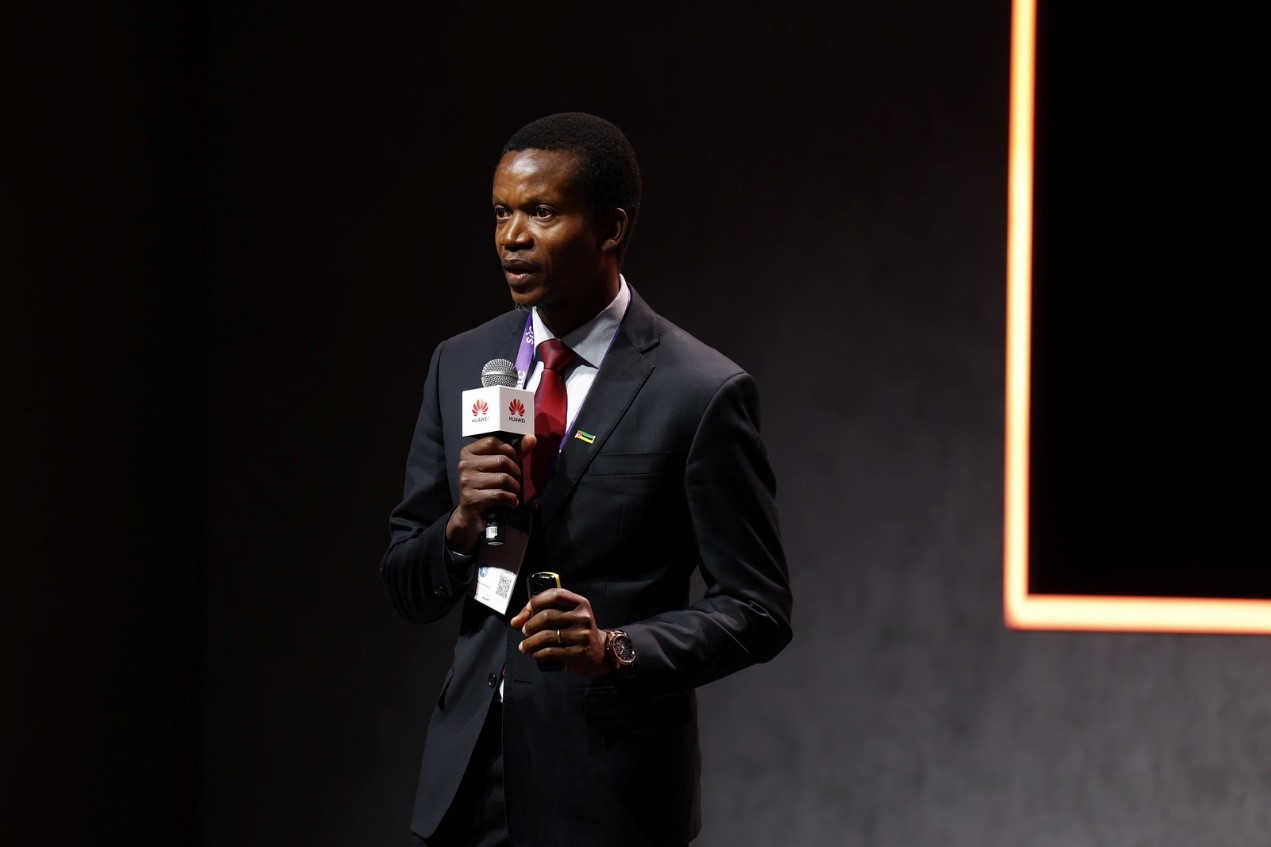
Wave of intelligentization in railway industry creates an opportunity for Africa to directly use the latest technologies to build intelligent railways and realize digital transportation, making the leapfrog development and corner overtaking possible. Amilton Alissone, Vice Minister of the Ministry of Transport and Communications of Mozambique, delivered a keynote speech entitled Mozambique's Transportation Development: Directions and Practices. He talked about how Mozambique has set up a transportation infrastructure system that covers its roads, ports, railways, and airports. As technology advances, the country will work with industry vendors to make that system comprehensive.
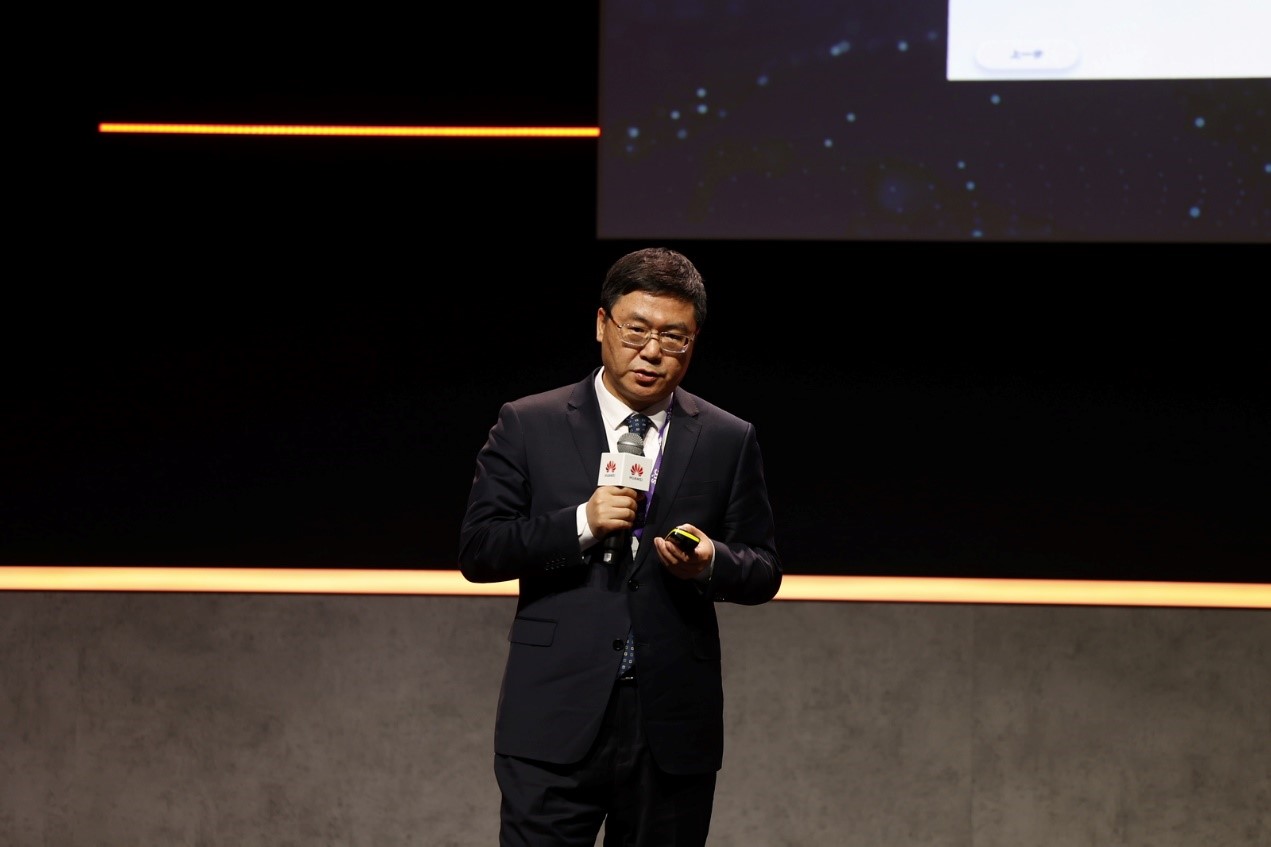
The rise of intelligence also opens up huge opportunities for the civil aviation sector. "Emerging digital industries are merging with civil aviation. Specifically, air travel e-commerce is based on e-ticket, shaped by e-payment, and will be further reshaped by e-currency," said Li Jinsong, Vice General Manager and CFO of TravelSky Technology Limited (referred to as "TravelSky"). "TravelSky is a pillar of informatization across the whole sector and provides major information services for air transportation and travel, while our partner Huawei, possesses industry-leading ICT advantages and digital capabilities. Therefore, we anticipate a closer partnership with Huawei to leverage data as a production factor, generating value for various innovative business scenarios of civil aviation."
At the session, Huawei unveiled four intelligent solutions:
The first one is the Intelligent Transportation System 2.0 Solution for the road sector. Software-defined cameras (SDCs), radar-integrated cameras, edge computing, cloud, big data, and other advanced technologies intelligently detect traffic incidents, optimize signal control, and monitor and analyze traffic situations, resulting in 15% higher overall traffic efficiency.
The second one is the Smart Railway — Perimeter Detection Solution. Multi-dimensional sensing, multi-technology convergence, and AI precisely detect abnormal intrusions across many scenarios in any weather, improving inspection efficiency by 50% and safeguarding railway assets and operations.
The third solution is the Smart Airport — Fully Connected Fiber Network Solution. The solution offers a fully connected fiber network that is reliable, agile, simplified, and sustainable alongside powerful network support for intelligent airport applications.
The last is the Smart Airport — Perimeter Security with Fiber Sensing Solution. It allows for comprehensive long-distance coverage and can collect 99.9% of fiber signals, which ensures almost no missed alarms and lowers the false alarm rate by 90%. In this way, the solution can protect airport operations around the clock, optimize intelligent perimeter protection, and improve airport staff's experience at work.
To date, Huawei has served over 210 airports, airlines, and air traffic control authorities, 300 urban rail lines across more than 70 cities, 150,000 kilometers of railways, 200,000 kilometers of roads, and 100 customers in the waterway and port sectors. Huawei gains value from its "platform + ecosystem" strategy and seeks the right technology for the right scenario. By developing industry solutions that cover hub campuses, road network channels, and the comprehensive logistics system, Huawei looks to enable convenient travel, smooth logistics, and a digital and intelligent future for the transportation industry.